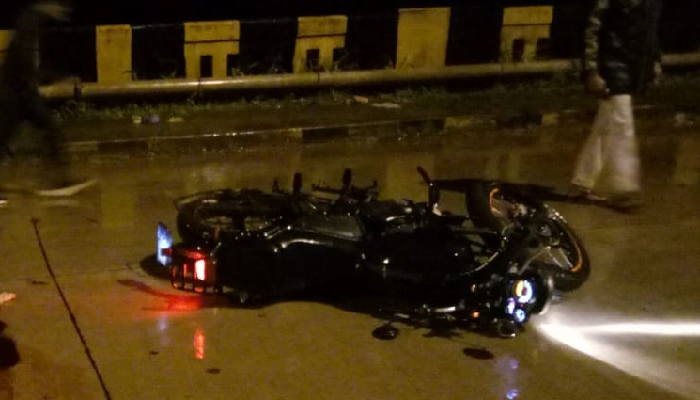Bengaluru, Apr 29: Indian women have always been the epitome of beauty, strength, and intelligence. Today, the success of Indian women across various walks of life has proven that they have earned this reputation.
One such dedicated social worker is Dr Sunitha Manjunath, the Founder of 'Sumanaa Foundation' of Sanjay Nagar in Bengaluru.
Sumanaa Foundation, based out of Sanjay Nagar in Bengaluru has been on the forefront to support people in distress due to COVID-19.
The foundation under the leadership of its founder Dr Sunitha Manjunath procured a total of 20000 kgs of farm-fresh produce in four phases from farmers who are unable to sell it due to the COVID Lockdown and have distributed it across 6000 families across Bengaluru city.
"We have procured these vegetables after identifying farmers who are unable to sell their produce due to the challenges of lockdown.
This initiative not only supports the farmers by helping them get the right price for their produce, but also gives us an opportunity to get vegetables at a reasonable price by escaping all middlemen and commissions. We have identified 6000 poor families mainly around Bengaluru city who have not been able to earn their daily wages and given them coupons.
The foundation members identify genuine cases and give them coupons which can be redeemed in exchange of an essential vegetables kit," said Dr Sunitha Manjunath, the founder of Sumanaa Foundation.
These vegetables have been procured from Chikkaballapura, Doddaballapura, and surrounding villages and included vegetables like onions, tomatoes, capsicum, green chillies, beans, carrots, brinjal, potatoes, beetroots etc. These farmers got a fair price for their produce and were overjoyed to know that their harvest is being distributed free of cost to needy and deserving families.
Sumanaa Foundation has been actively supporting the city administration in fighting COVID-19 pandemic. In the recent weeks the foundation has distributed sanitisers and masks to BBMP Pourakarmikas.
The foundation also cooked food for over 400 people each day. This food was handed over to the city administration, which further distributed this to the police department and other staff working across government departments during these testing times.
Dr Sunitha, an engineer by qualification, had enjoyed a high-flying corporate career with BOSCH. She was offered a global role, which she turned down to setup her NGO, 'Sumanaa Foundation' and to serve the needy in and around her locality. Over the past seven years, the NGO with 70 members has done a wide range of activities to support the poor and needy in Bengaluru.
The core team of Sumanaa Foundation works under the leadership of its president Dr Sunitha Manjunath and includes young and energetic individuals like Manjunath K, Prakash K, Vidya Prakash, Sindu Gowda, Byregowda, Nishita Arjun, Arjun Varadaraj and Manoj Kumar
'Meal of Humanity' is a notable initiative of Dr Sunitha Manjunath and her team. Under this program, over 300 poor people are served mid-day meals every day.
This is currently a self-sustained program with no external funding. Dr Sunitha Manjunath, her family members, and friends contribute their hard-earned money to bring smiles to hundreds of migrant workers and daily wage laborers.
'Wall of Humanity' is another unique concept implemented by Sumanaa Foundation. People can leave used or unnecessary daily use products like clothes, toys, groceries, etc at a designated area. This can be picked by anyone in need of these items. This self-helping model has touched the lives of hundreds of people in and around the area of Sanjay Nagar.
Regular blood donation camps, eye checkups, scholarship for students, tailoring machine distribution, environmental initiatives, Swacch Bharath programs, wall painting across the roadside are just a few among the hundreds of activities undertaken by Sumanaa Foundation regularly under the leadership of Dr Sunitha Manjunath and her team of friends.
"A life without an aim is worthless and so is a death without achievement. The aim of my life is to touch the lives of the hundreds of people who are not as privileged as you and me. I'd like to thank my husband Manjunath, my In-Laws and my friends from Sumanaa Foundation who work tirelessly alongside me across all our initiatives," said an elated Dr Sunitha Manjuanth on receiving the 'ET Power Icons' award for Excellence in Social Service and Public Initiatives.
Dr Sunitha Manjunath has also been awarded the prestigious 'Kempegowda Award' and many more such awards for her contribution to the society.





Comments
BJP has plenty of looted tax payers money in hand. i am sure horse trading going on between the missing MLA's These greedy leaders are only after money and power.
Those MLAs are elected from the party ticket and they should not have individual power to submit approval.
It is the right of the party to whom they belong.
Such shameless candidates should be severly punished by the elected people so that no horse trading can happen.
Add new comment